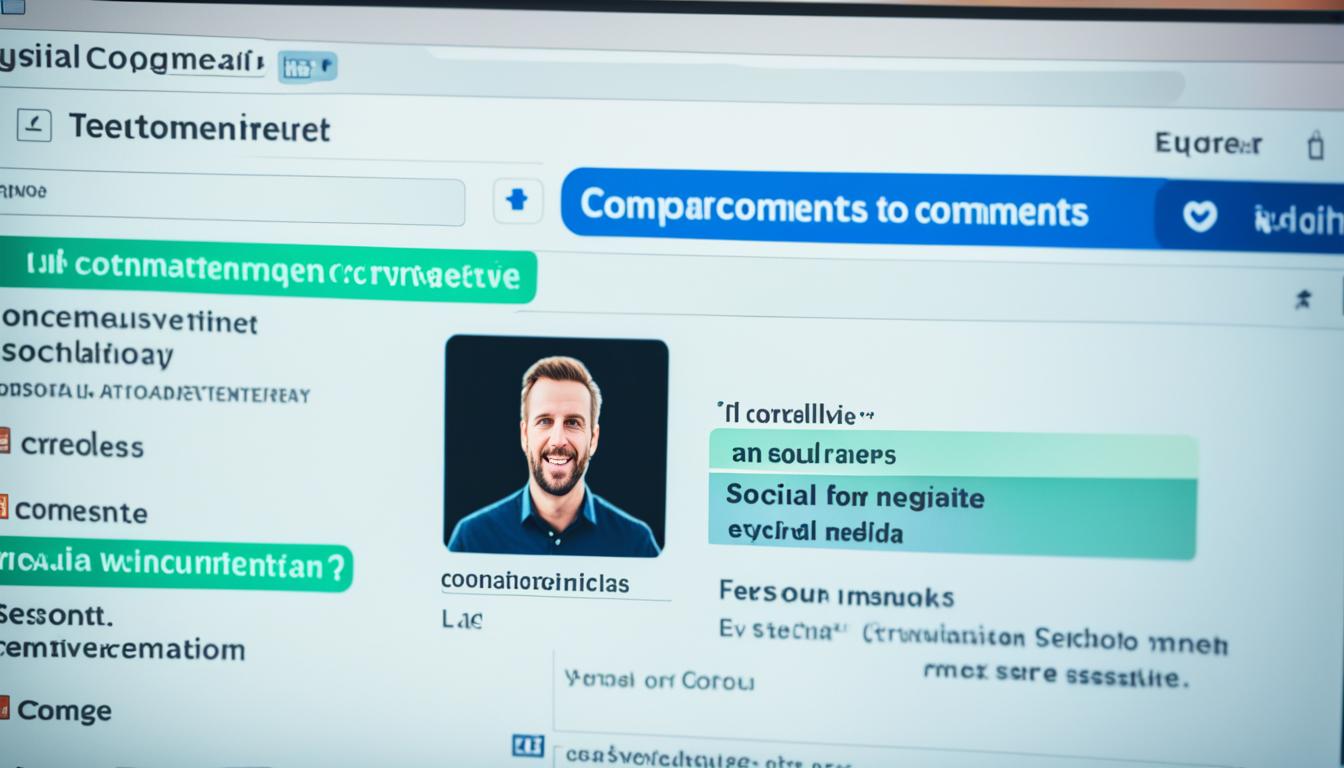Have you ever thought about how one online comment could destroy someone’s reputation or career? In our digital world, defamation and libel laws are key to protecting people and businesses from false claims. These laws, based on tort and media law, help balance the right to a good name with the freedom of speech1.
Defamation laws in the U.S. vary by state, making it complex for those handling online reputations1. We’ll look at how these laws work online, where a single tweet or blog can spread fast.
In Illinois, courts now treat libel and slander the same in defamation cases2. This change shows how defamation laws are adapting to our digital lives.
It’s vital to understand defamation and libel laws for anyone with an online presence. We’ll cover important topics like “actual malice” for public figures and the difference between fact and opinion in defamation cases1. By the end, you’ll know how these laws affect our online actions and protect reputations in the digital world.
Key Takeaways
- Defamation laws protect reputations while balancing free speech rights
- State laws largely govern defamation cases in the U.S.
- Online statements can lead to defamation lawsuits
- Public figures face a higher burden of proof in defamation cases
- Understanding the difference between fact and opinion is crucial in defamation law
- Online reputation management strategies should consider defamation laws
- Defamation laws continue to evolve with digital communication
Introduction to Defamation in the Digital Age
The digital age has changed how we talk to each other, but it has also brought new challenges. Now, internet defamation is a big issue because of social media and online forums. These platforms let harmful content spread fast, causing damage to people and businesses.
Online platforms have made it easier to damage someone’s reputation, hurting their dignity3. This has made managing digital reputations more important than ever. We need to deal with online threats quickly and take action before they get worse.
Legal fights over online defamation are happening all over the world, in the U.S., Europe, and Australia. These cases show how hard it is to control internet content and figure out which laws apply when information moves across borders4. Even though the internet is global, countries still use their own laws for things like defamation and libel.
Blogs get the same legal protection as big news outlets when it comes to defamation. This rule recognizes how online journalism and content creation have changed5. To avoid legal problems, some companies offer insurance for online libel claims, starting at $2,500 a year.
Understanding the legal rules and how to protect ourselves is key in this new world. We need a team effort from lawyers, PR experts, and digital specialists to handle online reputations and fight against internet defamation.
The First Amendment and Freedom of Speech
The First Amendment is key to our rights, protecting our freedom of speech. But, it has limits, especially in cases of defamation. For over a century, courts often sided with those suing for libel. However, the New York Times Co. v. Sullivan case in 1964 changed this6.
This case changed how courts balance free speech with protecting reputations, especially for public figures. It set the “actual malice” rule. This means a statement must be known to be false or said without caring about its truth78.
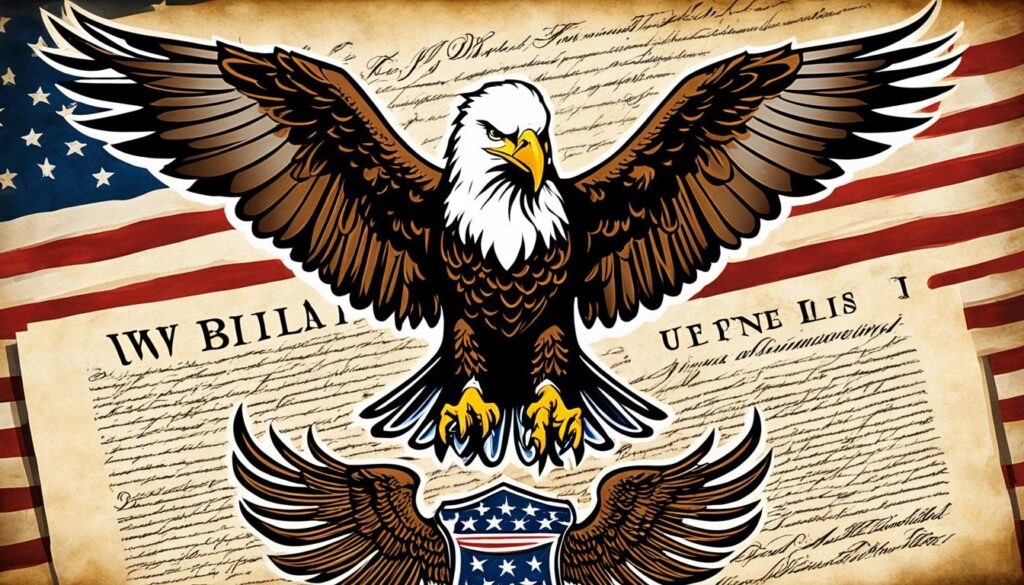
This ruling had a big impact. It let regular people, not just the media, use the First Amendment in defamation cases. This supports open dialogue and criticism of public officials6.
“Freedom of speech is not just vital for democracy, it’s the essence of it.”
Today, our discussions about free speech are still changing. Laws like Anti-SLAPP suits aim to stop false defamation claims that could silence us. These changes show the ongoing debate between protecting reputations and our right to speak7.
| Type of Figure | Defamation Standard | Example |
|---|---|---|
| Public Official | Actual Malice | Government officials with substantial control |
| Public Figure | Actual Malice | Celebrities, notable personalities |
| Limited Purpose Public Figure | Actual Malice (for relevant issues) | Individuals involved in specific public controversies |
| Private Individual | Negligence | Ordinary citizens not in the public eye |
Section 230 of the Communications Decency Act
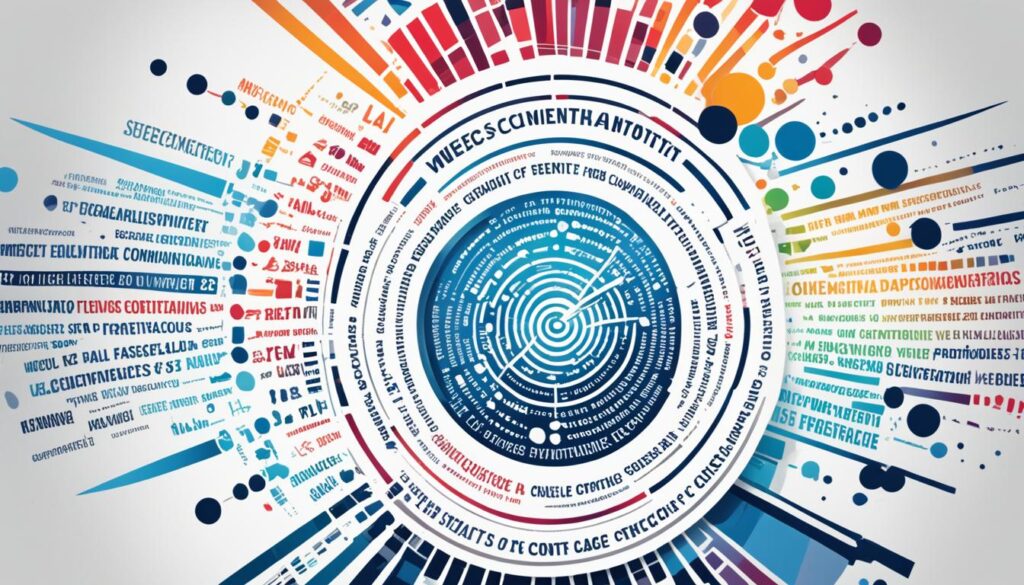
Section 230 of the Communications Decency Act is a key part of internet law in the U.S. It protects internet service providers and online platforms from being held liable for what users post910. This law has greatly influenced the digital world we see today.
This law says that internet providers can’t be seen as the creators or speakers of content made by others10. It covers a broad range of online services, not just traditional internet providers9.
Even though Section 230 has helped social media and sites with user content grow, it’s not without debate. It makes it hard to hold platforms accountable for harmful content, leading to discussions on their responsibility11. Some say it makes platforms less likely to act against illegal or harmful activities on their sites11.
“Section 230 is a deeply ambiguous statute stemming from errors committed by Congress, lower courts, and the Supreme Court in its drafting and interpretation.”
Section 230’s protection is wide, covering more than just defamation. It includes claims of interference with business and emotional distress9. But, it doesn’t protect against federal criminal laws, intellectual property laws, or laws about electronic communication9.
As online platforms become more important in our lives, the debate over Section 230 grows. There are many proposals in Congress to change or replace it. These changes aim to find a balance between free speech, managing content, and holding platforms accountable in the digital era1011.
Defamation and Libel Laws: Key Components
Defamation laws protect people from false statements that hurt their reputation. These laws cover both libel (written defamation) and slander (spoken defamation)12. To prove defamation, four key elements must be there: a false statement, sharing it with others, being careless, and it causing harm to reputation12.
In the United States, each state has its own defamation laws. This means different standards across the country13. For example, Maine requires proving fault for all defamation claims12. This can make dealing with defamation cases tricky.
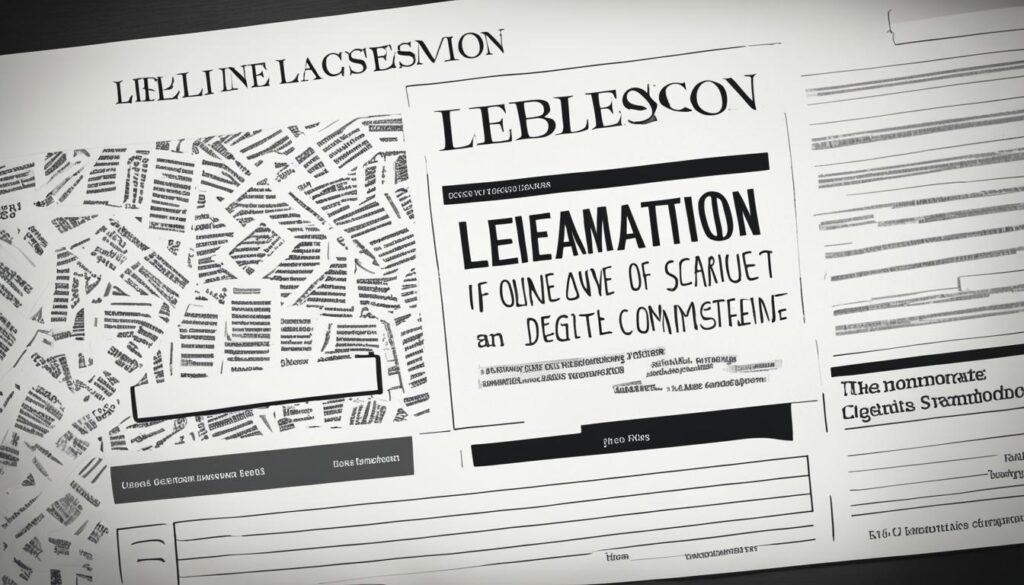
Truth is a strong defense against defamation claims12. Other defenses include absolute privilege (for statements in court) and qualified privilege (for statements that could be harmful but weren’t made with bad intent)12.
Public figures have a tougher time in defamation cases. They must show “actual malice,” meaning the statement was known to be false or made without caring about the truth13. This rule applies to public officials and some public figures14.
| Type of Defamation | Definition | Proof Requirements |
|---|---|---|
| Libel | Written defamation | False statement, publication, fault, harm to reputation |
| Slander | Spoken defamation | Often requires proof of special damages, except in “per se” categories |
| Defamation Per Se | Automatically considered defamatory | No proof of special damages needed |
Defamation cases can result in damages for economic losses and non-economic losses like pain and suffering. In serious cases, punitive damages can also be given14. Knowing these key parts of defamation and libel laws is important for both sides in legal cases14.
Online Reputation Management Strategies
Managing our online reputation is key in today’s digital world. We face many challenges to protect our online image. Defamatory content can pop up on social media, blogs, and review sites15. To tackle these issues, we use several strategies.
Removing harmful content is a main tactic. We ask for false or damaging info to be taken down from websites. This works well for clear cases of defamation or copyright issues. Sometimes, we use DMCA takedown notices for copyright violations.
Search engine optimization is also key. We aim to hide negative results by boosting positive content. This means creating and optimizing good content to beat harmful stuff in search results.
In some places, we use the “right to be forgotten.” This lets people ask for outdated or irrelevant info to be removed from search results. It’s a strong tool for managing online reputations.
Monitoring online mentions is crucial. We watch closely and act fast on potential threats. By building a positive online presence, we create a strong base that can handle some negative content.
Knowing the law is important. Defamation laws differ by state, so we often get advice from local lawyers15. We also know about the protections for website hosts and ISPs under the Communications Decency Act1615.
Our aim is to help people and businesses keep a good online image. With these strategies, we work hard to make sure our clients’ reputations stay strong online.
International Perspectives on Defamation Laws
Defamation laws differ greatly around the world, showing various cultural and legal views. Nations are trying to find a balance between free speech and protecting reputations. In the UK, the Defamation Act 2013 set a “serious harm” standard, making it harder to sue for libel.
In some places like Singapore and Japan, defamation is still a crime. This view is questioned by many. The U.N. Human Rights Committee suggests dropping criminal charges for most defamation cases, keeping it only for the worst cases17.
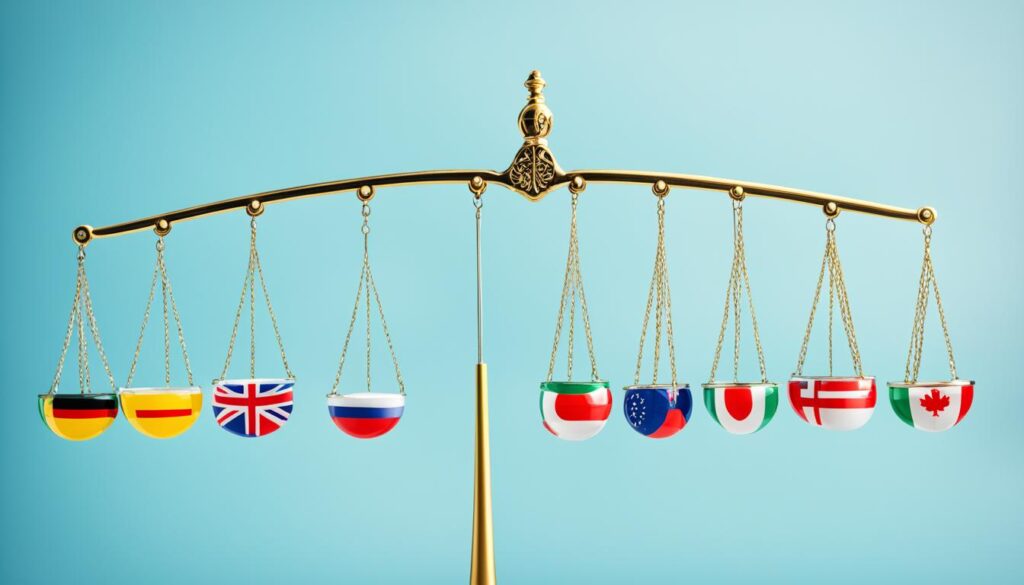
The European Union tries to balance protecting reputations with free speech. The European Court of Human Rights says public figures, like leaders, can’t expect special protection from criticism17. This is also the view of the U.S. Supreme Court, which demands “actual malice” proof in defamation cases17.
Dealing with defamation laws gets tricky in today’s connected world. “Libel tourism” – where people sue in places with easy laws – has led to changes in some countries. These changes aim to stop this practice and protect free speech.
“Imprisonment is not a legitimate sanction for defamation,” states the UN Special Rapporteur on Freedom of Opinion and Expression18.
Handling defamation cases across borders is complicated. It involves figuring out which laws apply and enforcing judgments across borders. This shows we need global standards for defamation laws.
| Recommendation | Support |
|---|---|
| Decriminalize defamation and insult | Overwhelming majority |
| No imprisonment for defamation | Unanimous |
| Defense of truth for journalists | Majority |
| Burden of proof on plaintiff | Majority |
| No special protection for public officials | Majority |
These recommendations show a growing agreement on what’s best in defamation laws19. As we deal with online reputations, knowing these global views is key.
Emerging Trends in Online Defamation
Online defamation is changing fast in our digital world. We’re seeing more AI-generated content and deepfakes, making it harder to manage reputations. These technologies let people create fake content that looks real20.
Now, social media is where people often get their news, which adds to the problem. Many Americans look to platforms like TikTok for news, but it’s hard to tell what’s true and what’s just opinion20. This shows we need better media literacy and critical thinking.
To fight lawsuits meant to silence free speech, anti-SLAPP laws are becoming more common. These laws protect people and groups from Strategic Lawsuits Against Public Participation (SLAPPs), which can be expensive to fight21.
New laws to make online safer are coming. The EU’s Digital Services Act and the UK’s Online Safety Act are trying to make platforms more accountable. They aim to make the internet safer without hurting free speech.
In the US, there’s no federal law to deal with social media issues like hate speech and censorship. So, social media companies are making their own rules. This can lead to content being removed and accounts being suspended22. It makes us wonder about the balance between the platforms and users’ rights.
As we face these new trends, it’s clear online defamation is getting more complex. Finding the right balance between free speech, platform responsibility, and individual rights will be key in shaping future laws and policies.
Conclusion
As we finish our look at defamation and libel in online reputation management, we see new challenges. The digital age has changed how we handle rights and protect reputations. Since the New York Times Co. v. Sullivan case in 1964, laws have changed a lot23. This shows we need ongoing updates to laws to match new tech.
Knowing how to use the internet wisely is key today. We need to know our rights and duties when posting online. The First Amendment protects most speech, but posting false facts can lead to legal trouble24. Finding a balance between free speech and protecting reputations is a big topic in legal discussions.
We need a mix of legal advice, tech solutions, and good communication to protect our reputations. As we spend more time online, keeping a good digital image is vital. By learning about defamation laws and being digitally smart, we can protect our reputations. This helps us all be more responsible online.
FAQ
What is defamation?
How has the digital age impacted defamation?
How does the First Amendment relate to defamation?
What is Section 230 of the Communications Decency Act?
What are the key components of defamation and libel laws?
What are some online reputation management strategies?
How do defamation laws vary internationally?
What are some emerging trends in online defamation?
Source Links
- Understanding the Two Types of Defamation – https://www.minclaw.com/types-of-defamation/
- Libel vs. Slander vs. Defamation – What are the Differences? – https://www.thebusinesslitigators.com/libel-vs-slander-vs-defamation-what-are-the-differences.html
- DEFAMATION LAWS IN THE DIGITAL AGE: UNDERSTANDING LIBEL AND SLANDER ONLINE – https://www.linkedin.com/pulse/defamation-laws-digital-age-understanding-libel-slander-i5bsc
- Defamation in the Digital Age: Some Comparative Law Observations on the Difficulty of Reconciling Free Speech and Reputation in the Emerging Global Village The Washington and Lee Law Alumni Association Student Notes Colloquium – https://scholarship.law.ua.edu/cgi/viewcontent.cgi?article=1241&context=fac_articles
- Online Defamation Law – https://www.eff.org/issues/bloggers/legal/liability/defamation
- First Amendment Defense in Defamation and Libel Suits – https://www.thebusinesslitigators.com/first-amendment-defense-in-defamation-and-libel-suits.html
- Libel and Slander – https://firstamendment.mtsu.edu/article/libel-and-slander/
- Freedom of Speech – Defamation – https://constitutionallawreporter.com/amendment-01/freedom-speech/defamation/
- Section 230 Protections – https://www.eff.org/issues/bloggers/legal/liability/230
- Interpreting the ambiguities of Section 230 | Brookings – https://www.brookings.edu/articles/interpreting-the-ambiguities-of-section-230/
- DEPARTMENT OF JUSTICE’S REVIEW OF SECTION 230 OF THE COMMUNICATIONS DECENCY ACT OF 1996 – https://www.justice.gov/archives/ag/department-justice-s-review-section-230-communications-decency-act-1996
- defamation – https://www.law.cornell.edu/wex/defamation
- Defamation, Privacy and Data Protection Law in the USA – https://www.carter-ruck.com/law-guides/defamation-and-privacy-law-in-united-states/
- The Key Elements of Defamation, Libel, and Slander Claims – https://www.nolo.com/legal-encyclopedia/defamation-libel-slander-key-elements-claim.html
- 2024 Guide to Online Defamation – https://reputationresolutions.com/removal/2024-guide-to-online-defamation/
- Reputation Attorneys – https://reputationattorneys.com/fighting-defamation
- International Standards | Defamation Laws – http://legaldb.freemedia.at/international-standards/
- Microsoft Word – DEF.04.doc – https://www.article19.org/data/files/pdfs/analysis/defamation-standards.pdf
- Microsoft Word – Defamation – Freedom of expression 03_03_03.doc – https://rm.coe.int/1680483b2d
- When Punchlines Become Headlines: Defamation Law in the Digital Era of News Entertainment – https://journals.library.columbia.edu/index.php/lawandarts/announcement/view/683
- Defamation and Reputation – Resource Hub | Media Defence – https://www.mediadefence.org/resource-hub/defamation-and-reputation/
- PDF – https://www.bowlesrice.com/media/publication/1341_05-McMillan.pdf
- Defamation – https://www.law.cornell.edu/constitution-conan/amendment-1/defamation
- Defamation, Libel, Slander and Cyber Smear – https://www.thebusinesslitigators.com/defamation-libel-slander-and-cyber-smear.html

